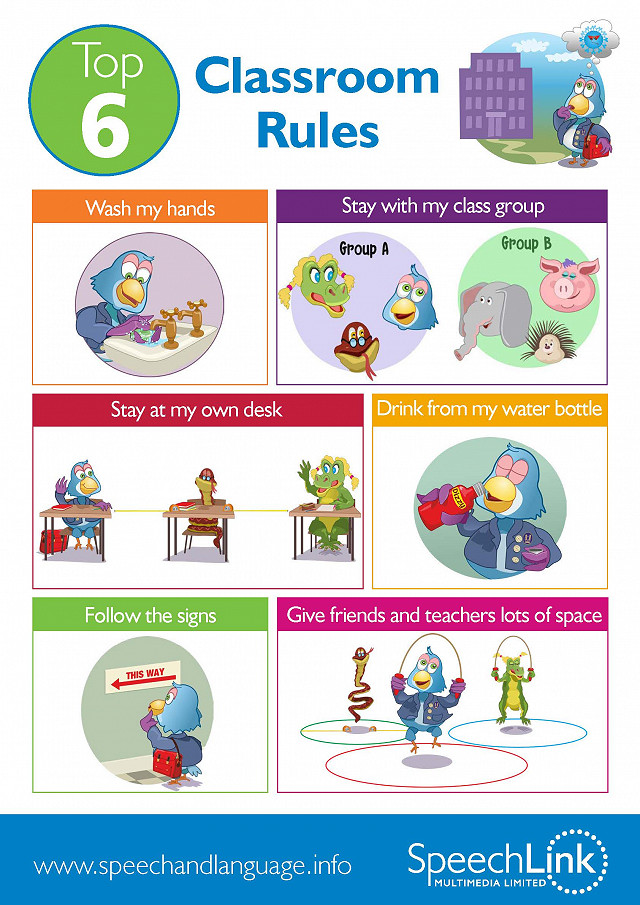How can I support my child to return to school after lockdown?

Returning to school at such an unusual time of change is likely to cause anxiety for children and adults alike. For a child with speech, language and communication needs (SLCN), understanding the reasons behind decisions, being able to talk about worries and coping with change are additional areas of challenge. Here are some tips on how you can support your child’s return to school during these challenging times.
Prepare
Prepare your child as much as possible, in a calm and reassuring way. There will be lots of changes in the school environment and some of their friends may still be learning at home or be in self isolation. There will be new signs and rules to process and understand. It is important to take time to think about these in advance of school return. The ‘New Classroom Rules’ poster, available on the Parent Portal is a good way to start the conversation and talk about the new rules and the reasons for these. Your child’s school may be able to help with pictures and information about the changes, so that your child knows what to expect.

Make it visual
Life has changed because of an invisible bug, so where possible, bring information for your child alive using photographs and pictures. Make any advice as concrete and visual as possible. Keep the language positive, describing rules and changes. For example, it is clearer and easier for your child to understand “you will be in this classroom”, than to process “you won’t be in your usual classroom”. Even the bug can be made in to a visual (but not scary looking) creature, to help your discussions!
Talk about feelings
Returning to school is bound to create anxiety. It is good to talk about what is happening and to reassure children that the rules are in place to help everyone and keep them safe. You may yourself feel anxious about your child returning and it is important to take time to consider your own feelings and thoughts and feel calm before talking with your child. Answer your child’s questions as honestly and clearly as you can; try not to give too much information which may overwhelm them.
Your child’s questions may vary from very serious subjects (“will I get sick in school?”) to remarks that you might consider more trivial (“will we still get hot chocolate at Forest school?”) Let them know that all questions are welcome. Focus on what everyone is doing to stay safe and reassure your child that there is an open line of communication.
Be clear and accurate
No-one can predict what changes will happen in the coming months. Give clear explanations, without making promises that might not be fulfilled. It is ok to not be able to answer your children’s questions about what will happen next. A calm and reassuring approach and an openness to talking about their worries will help them to feel safe and supported.